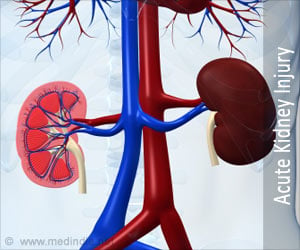SphingoTech’s penKid® is the biomarker for detecting acute kidney injury in infants.

‘penKid® is an established biomarker for detecting acute kidney injury in adults. The new study shows that reference values for penKid® in children are much higher than in adults.’





However, when considering these higher reference values in critically ill children under one year of age, high or increasing penKid® concentrations accurately predict AKI and its severity. Dr. Andreas Bergmann, CEO of SphingoTec, commented: "The data confirm, that penKid® predicts AKI also in challenging settings such as the pediatric critical care. In critically ill children, AKI has a high prevalence, is associated with poor outcomes and the possibilities for pharmacological intervention are limited. Therefore, the early detection of AKI is paramount in improving the prognosis for these children."
In children admitted to hospital, AKI is a common complication especially among those requiring intensive care, affecting up to 51% admitted to ICU (2). Pediatric AKI is often diagnosed too late for successful therapeutic interventions leading to adverse outcomes and chronic kidney impairment. The data from the recent study highlight that penKid® has the potential to address this diagnostic shortcoming.
The study data add to the rapidly growing body of evidence in by now more than 30,000 adult patients, showing that penKid® is an early and accurate indicator for the worsening or improvement of kidney function. Importantly, penKid® is independent of inflammation and comorbidities and, as recently published, the most accurate surrogate marker for true glomerular filtration rate (true GFR) in patients with renal impairment (3) and hence ideally suited for the real-time assessment of kidney function and the early prediction of AKI.
Source-Eurekalert















